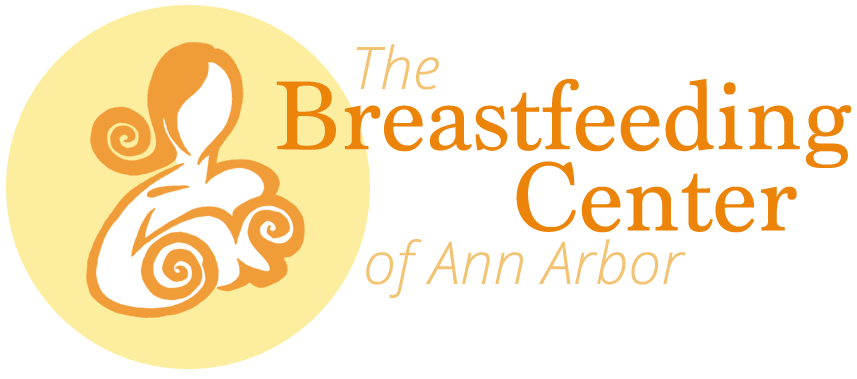I have been so surprised by the recent backlash against “Baby Friendly” hospitals. What is really shocking is the lack of any sort of fact checking that is going on in these laments. The authors are being critical of things that are not even true.
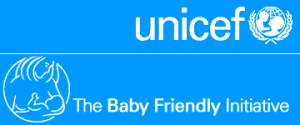 For those of you who are not familiar with BFHI, the “Baby Friendly Hospital Initiative” (BFHI) was launched back in 1991 by the World Health Organization and UNICEF. The idea was to have hospitals certified in practices that they believe promoted breastfeeding which leads to healthier babies. World wide, there are 152 countries that have Baby Friendly Hospitals. There are around 15,000 hospitals total all over the world. Interestingly, the US has been slow to embrace the BFHI movement. In 2007, only 2.9% of births occurred in Baby Friendly hospitals. Today, 19.2% of babies born in the US are born in one of 388 designated Baby Friendly hospitals. This number is sky rockets as peer pressure from competing hospitals to become Baby Friendly is increasing.
For those of you who are not familiar with BFHI, the “Baby Friendly Hospital Initiative” (BFHI) was launched back in 1991 by the World Health Organization and UNICEF. The idea was to have hospitals certified in practices that they believe promoted breastfeeding which leads to healthier babies. World wide, there are 152 countries that have Baby Friendly Hospitals. There are around 15,000 hospitals total all over the world. Interestingly, the US has been slow to embrace the BFHI movement. In 2007, only 2.9% of births occurred in Baby Friendly hospitals. Today, 19.2% of babies born in the US are born in one of 388 designated Baby Friendly hospitals. This number is sky rockets as peer pressure from competing hospitals to become Baby Friendly is increasing.
Here are the ten steps to becoming a BFH:
- Have a written breastfeeding policy that is routinely communicated to all health care staff.
- Train all health care staff in the skills necessary to implement this policy.
- Inform all pregnant women about the benefits and management of breastfeeding.
- Help mothers initiate breastfeeding within one hour of birth.
- Show mothers how to breastfeed and how to maintain lactation, even if they are separated from their infants.
- Give infants no food or drink other than breast-milk, unless medically indicated.
- Practice rooming in – allow mothers and infants to remain together 24 hours a day.
- Encourage breastfeeding on demand.
- Give no pacifiers or artificial nipples to breastfeeding infants.
- Foster the establishment of breastfeeding support groups and refer mothers to them on discharge from the hospital or birth center.
They are endorsed by:
- American Academy of Family Physicians
- American Academy of Nurses
- American Academy of Pediatrics
- American College of Nurse-Midwives
- Academy of Breastfeeding Medicine
- Academy of Nutrition and Dietetics
- Association of Women’s Health, Obstetric and Neonatal Nurses (AWHONN)
- Centers for Disease Control and Prevention (CDC)
- National WIC Association
- U.S. Breastfeeding Committee (USBC)
- U.S. Preventive Services Task Force
- U.S. Surgeon General
When I pulled up the endorsements, I, myself, was really impressed! I didn’t realize there was so much buy in for this idea here in the US at this time. These organizations are all the big medical/government players who care about mother/infant health. So, we are not talking about some fly by night organization pushing forward their own agenda.
Back to the recent bashing of the BFHI. I know the internet is not the safest place to get your information, but that is what we all do! Here is a podcast about being careful about what you read and where you should go for good breastfeeding information. I just read about a doctor who says there are no health benefits to breastfeeding after your baby is two! Really?
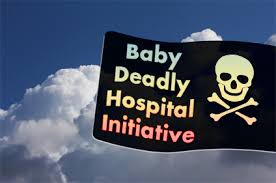 In terms of the Baby Friendly, take this recent article, “Strict breastfeeding rules don’t work and can hurt young babies”. It says that the Baby Friendly practices have been proven to be ineffective and harm babies. But if you read the article, it actually contradicts itself. Did they not read their own headline? They propose that infants are in danger of being harmed by dehydration, low blood sugars, and jaundice. But then they say, “These rules include giving newborns nothing to drink except breast milk unless medically (my italics) necessary. Francesca Entwistle of UNICEF says dehydration or jaundice could be classed as a medical need for formula.” Right, if a BREASTFEEDING baby does not need extra food for a medical reason, they don’t give formula. Duh.
In terms of the Baby Friendly, take this recent article, “Strict breastfeeding rules don’t work and can hurt young babies”. It says that the Baby Friendly practices have been proven to be ineffective and harm babies. But if you read the article, it actually contradicts itself. Did they not read their own headline? They propose that infants are in danger of being harmed by dehydration, low blood sugars, and jaundice. But then they say, “These rules include giving newborns nothing to drink except breast milk unless medically (my italics) necessary. Francesca Entwistle of UNICEF says dehydration or jaundice could be classed as a medical need for formula.” Right, if a BREASTFEEDING baby does not need extra food for a medical reason, they don’t give formula. Duh.
The article was referring to an editorial written by Valerie Flaherman and Isabelle Von Kohorn published in JAMA in October of 2016 on breastfeeding support effectiveness. “Any intervention, no matter how well-intentioned, carries a risk of adverse events. The USPSTF attempted to evaluate adverse events from primary care interventions to support breastfeeding. However, only 2 studies were identified as reporting any adverse events, and both focused on maternal (my italics) outcomes.” What? Where are the dangers to babies? There were none reported.
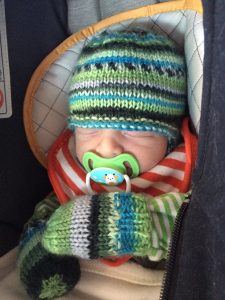
The editorial also refers to step 9 which discourages the use of pacifiers in the first days. They say pacifiers can decrease the odds of SIDS. First of all, the risk of SIDS is very, very low until the baby is about 1 month of age. It increases until about 4 months, and then decreases again. Secondly, do you know what decreases SIDS significantly? Breastfeeding. There are many studies that have linked pacifier use in the first weeks with decreased breastfeeding rates. That is why step 9 is in place.
Finally, there is this idea, promoted by Whoopie Goldberg, that formula is somehow banned in a BFH. That the BFHI does not want to feed babies. “Ten years ago, you could ask for a bottle of formula,” says Howard. “It’s no longer available in some hospitals. I hear of dads being sent out to buy some at 3 am because the baby wasn’t feeding and there simply was no formula.”
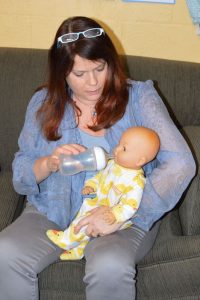
I am sorry but this is a bunch of crap. Mother request, choosing to formula feed, is a way families can get formula in the hospital while you are there. What is this about? Formula is not banned. It is simply not given out like candy anymore. A BFH has to pay for the formula themselves. Formula companies love to supply hospitals with free formula because brand loyalty is strong. Anything the hospital gives out is an implicit endorsement of that product. This is consider an unfair marketing practice.
Yikes!
 I don’t mind criticism of the BFHI. Are BFHs perfect? No, not at all. This very fast growth means less buy in through out the whole hospital system. Michigan actually had one the first US BFH back in 1990s but they lost their status when upper management changed and the champion for the certification moved away. However, the ideas behind the BFHI are good ones. I also feel that the hospitals do not invest money in as much breastfeeding training as they should. If you are going to support breastfeeding, you better understand how it really works. And, I do feel like one on one, individual help and support from a well training IBCLC, lactation consultant, is much more effective than any policy. But I also believe this is a huge step in the right direction and every bit helps. And please, let’s at least be accurate.
I don’t mind criticism of the BFHI. Are BFHs perfect? No, not at all. This very fast growth means less buy in through out the whole hospital system. Michigan actually had one the first US BFH back in 1990s but they lost their status when upper management changed and the champion for the certification moved away. However, the ideas behind the BFHI are good ones. I also feel that the hospitals do not invest money in as much breastfeeding training as they should. If you are going to support breastfeeding, you better understand how it really works. And, I do feel like one on one, individual help and support from a well training IBCLC, lactation consultant, is much more effective than any policy. But I also believe this is a huge step in the right direction and every bit helps. And please, let’s at least be accurate.
